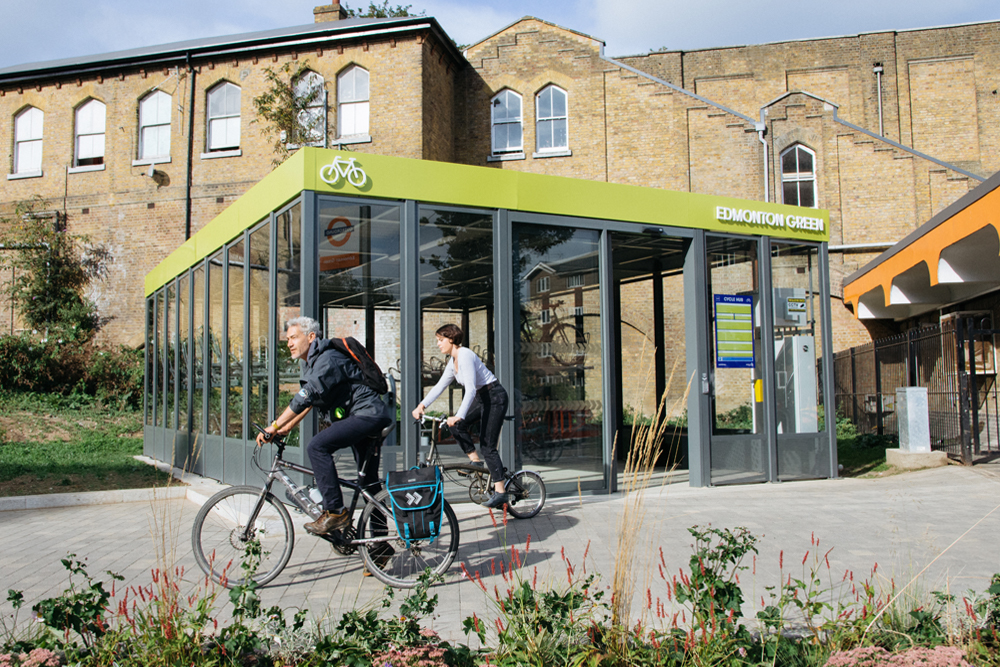Explore how businesses can drive sustainability and reap economic, environmental, and health benefits by investing in walking and cycling.
Sustainability is becoming increasingly important in today’s business world. Companies recognize that adopting sustainable practices is good for the environment and beneficial for their bottom line. Promoting walking and cycling among employees is a practical and impactful way to integrate sustainability into business operations. This blog explores the benefits and strategies for businesses to support these initiatives.

The importance of sustainability in business
Sustainability is crucial for long-term business success. Consumers are increasingly favoring brands that prioritize environmental responsibility. Programs like the Becoming a Bicycle Friendly Business | League of American Bicyclists (bikeleague.org) help businesses integrate cycling into their sustainability strategies, enhancing their appeal to eco-conscious consumers. By adopting these practices, businesses can save on costs through energy efficiency, reduce their carbon footprints, and improve their reputation, leading to increased customer engagement and loyalty. Companies like Patagonia have successfully implemented sustainability strategies, showcasing the significant benefits of such initiatives. Patagonia shows how turning a profit doesn’t have to cost the Earth | McKinsey
Benefits of sustainability in business
Adopting sustainable practices offers numerous benefits, including economic, environmental, and social advantages. Economically, businesses can save on costs through energy efficiency and reduced waste. Environmentally, sustainable practices lower carbon footprints and minimize pollution. Socially, they enhance brand reputation and customer loyalty. For instance, companies like Patagonia and Unilever have successfully implemented sustainability strategies, leading to increased customer engagement and loyalty.
Boosting the local economy
Investing in walking and cycling infrastructure isn’t just good for the environment—it’s good for business. Studies like Invest in Walking and Cycling For Sustainable, Safe Cities. Here’s How. | World Resources Institute (wri.org) show that these initiatives can lead to reduced healthcare costs, higher property values, and increased retail sales. Cities that are more walkable and bike-friendly naturally attract more customers, reducing absence and enhancing productivity among employees.
Environmental advantages
Cycling stands out as one of the greenest modes of transport. It helps lower greenhouse gas emissions, reduces pollution, and cuts down on fossil fuel dependency. How Riding a Bike Benefits the Environment | UCLA Transportation underscores how increased cycling can significantly diminish urban air pollution, creating cleaner, healthier cities. How BMW is embracing sustainable transportation strategies | GreenBiz demonstrates the corporate shift towards greener practices.
Health and community benefits
Cycling and walking don’t just benefit the environment—they’re great for public health too. Regular physical activity can lower the risk of chronic diseases, improve mental health, and foster a sense of community. Businesses that support these activities show their dedication to employee wellness and social responsibility. For example, 5 Companies that Crush Bike to Work Day | Bicycling highlights companies that excel in promoting bike-to-work days, reinforcing the community and health benefits of cycling.
How biking and walking contribute to sustainability in the workplace
Biking and walking are effective ways to reduce carbon emissions and pollution. These modes of active mobility significantly lower the use of fossil fuels and decrease urban air pollution. Additionally, promoting biking and walking can improve employee health, leading to reduced healthcare costs and increased productivity. Healthier employees are less likely to take sick days, and they often have higher morale and job satisfaction. The Top 25 Best Companies for Cyclists showcase how leading businesses integrate cycling into their workplace culture.
Implementing a sustainable mobility strategy
Businesses can promote cycling and walking through various initiatives. Start by improving infrastructure, such as installing bike racks, lockers, and showers. Offering incentives like subsidies for bike purchases or organizing bike-to-work days can also encourage employees to choose these modes of transport. Additionally, businesses can create programs that reward employees for reducing their carbon footprints.
How can businesses encourage employees to cycle or walk to work?
Businesses can encourage employees to cycle or walk to work by providing secure bike parking, offering financial incentives, and organizing events that promote active commuting. Creating a supportive and safe environment is key to encouraging more employees to choose sustainable transportation options.
Measuring the impact
Tracking and reporting the impact of active mobility initiatives is essential for demonstrating their value. Businesses can use metrics such as the reduction in carbon emissions, employee health improvements, and cost savings from decreased healthcare expenses. Regularly reporting these outcomes can help justify the investment in sustainable practices and motivate continued support from stakeholders.
Why your business should invest
By supporting walking and cycling initiatives, businesses can reap numerous rewards. These initiatives not only drive economic gains and environmental improvements but also promote public health and social cohesion. In a world where sustainability is becoming increasingly important, now is the perfect time for businesses to get on board.

Promoting walking and cycling is a smart and sustainable investment for businesses. It offers economic, environmental, and health benefits that contribute to the long-term success of the company. For more information on how Cyclehoop can assist with implementing sustainable transportation solutions, contact us today.
Discover More
- Invest in Walking and Cycling For Sustainable, Safe Cities. Here’s How. | World Resources Institute (wri.org)
- In the Northeast, Improved Walking and Bicycling Infrastructure Could Save Hundreds of Lives, Billions of Dollars | The Brink | Boston University (bu.edu)
- How Riding A Bike Benefits the Environment | Transportation (ucla.edu)
- How BMW is embracing sustainable transportation strategies | GreenBiz
- 5 Companies that Crush Bike to Work Day | Bicycling
- The 25 Best Companies for Cyclists (bicycling.com)
- Becoming a Bicycle Friendly Business | League of American Bicyclists (bikeleague.org)

